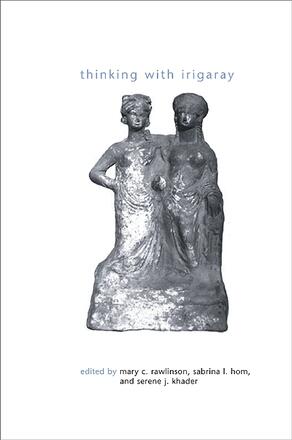
Thinking with Irigaray
Alternative formats available from:
An interdisciplinary and contemporary response to Irigaray’s work.
Description
Thinking with Irigaray takes up Irigaray's challenge to think beyond the androcentric, one-subject culture, identifying much that is useful and illuminative in Irigaray's work while also questioning some of her assumptions and claims. Some contributors reject outright her prescriptions for changing our culture, others suggest that her prescriptions are inconsistent with the basic ethical concerns of her project, and still others attempt to identify blind spots in her work. By confronting and challenging the mechanisms of masculine domination Irigaray has identified and applying these insights to a wide range of practical and contemporary concerns, including popular media representations of women's sexuality, feminist practice in the arts, political resistance, and yoga, the contributors demonstrate the unique potential of Irigaray's thought within feminist philosophy and gender studies.
Mary C. Rawlinson is Associate Professor of Philosophy and Comparative Literature at Stony Brook University, State University of New York. She is the coeditor (with Ellen K. Feder and Emily Zakin) of Derrida and Feminism: Recasting the Question of Woman and (with Shannon Lundeen) of The Voice of Breast Cancer in Medicine and Bioethics. Sabrina L. Hom is Assistant Professor of Philosophy at Westminster College in Salt Lake City, Utah. Serene Khader is Assistant Professor of Philosophy at Stony Brook University, SUNY. She is the author of Adaptive Preferences and Women's Empowerment.
Reviews
"The project of 'thinking with Irigaray' is what I find especially valuable in this work; each of the contributors seeks to take up an aspect of Irigaray's thought and to develop it further in relation to a specific problematic. This is a generous approach that returns Irigaray's contribution to feminist thought by showing how to take her thinking further in ways that are creative and constructive, as well as critically informed. " — Rachel Jones, University of Dundee